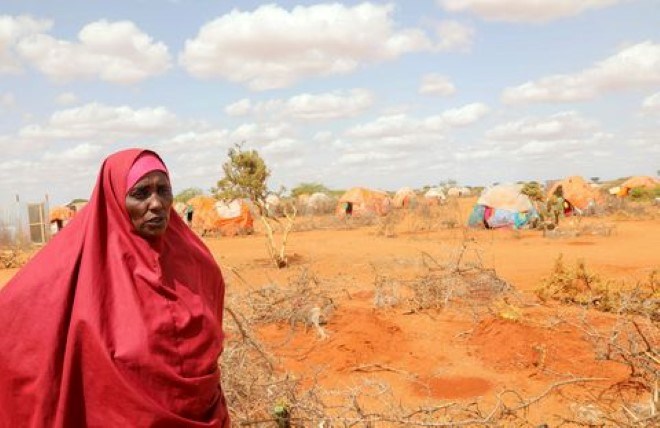UN Agencies Warn of Hunger Crisis in Somalia as Severe Drought Looms

MOGADISHU, Xinhua: The UN agencies on Friday urged immediate financing for humanitarian relief in Somalia, where a catastrophic drought looms and millions of people risk the danger of sinking further into a food crisis.
The United Nations Food and Agriculture Organization (FAO), UN Office for the Coordination of Humanitarian Affairs (OCHA), UN Children’s Fund (UNICEF) and the UN World Food Program (WFP) warned that below-average rainfall between October and December linked to the La Nina weather phenomenon threatens to reverse recent gains in food security.
The UN agencies said that Somalia, which was on the verge of famine in late 2022, could experience a hunger crisis once more as a result of severe drought.
“Without swift action, Somalia risks slipping back into the hunger crisis that nearly led to famine in recent years,” Elkhidir Daloum, WFP’s country director in Somalia, said in a joint statement issued in Mogadishu, the capital of Somalia.
Daloum said despite some progress in food security, many families are still at risk of hunger as food prices surge and crop yields dwindle, adding that the focus must be on providing immediate assistance while fostering long-term resilience.
The warning follows the latest Integrated Food Security Phase Classification (IPC) analysis, which reveals that 3.6 million people are currently experiencing crisis levels of hunger in Somalia (IPC3+).
It is expected to rise to 4.4 million between October and December, when below-average Deyr rains are anticipated. Some 1.6 million children under the age of five are at risk of acute malnutrition until July 2025, including 403,000 likely to suffer from severe malnutrition, according to the report.
FAO Representative to Somalia Etienne Peterschmitt stressed the urgency of early action, given the La Nina forecast and the potential for drought. “The loss of livestock will further threaten rural livelihoods, pushing millions deeper into hunger and poverty. Anticipatory action is essential to mitigate these impacts and prevent a worsening food security crisis,” he added.
The IPC findings mirror global weather forecasts, which indicate an 80 percent probability of La Nina conditions, which could lead to drought in Somalia.
The forecasts indicate the likelihood of a below-normal Deyr rainy season and above-normal temperatures, which could cause severe soil moisture loss, poor crop and fodder productivity, and worsen food insecurity in vulnerable communities.
Amid funding gaps, unfavorable rainfall forecasts, ongoing security challenges, and rising food prices, the UN agencies are urgently calling for additional funding to expand humanitarian and resilience programs to mitigate the impacts of the expected drought in Somalia.